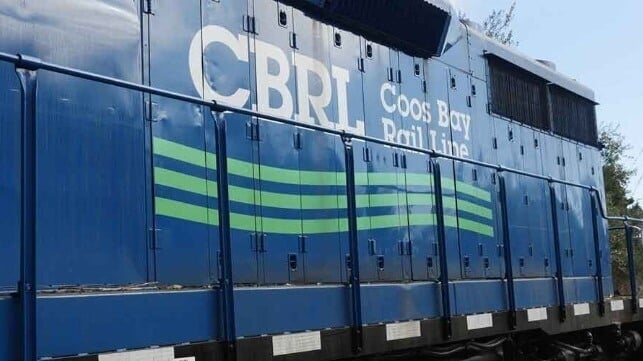Port of Coos Bay Seeks Critical Grants to Advance Transformational Terminal

[By: Port of Coos Bay]
The Oregon International Port of Coos Bay, in collaboration with North Point Development, is seeking three significant federal grants to advance the Pacific Coast Intermodal Port project (PCIP).
The applications mark a pivotal moment for the Port as it secures funding for the economy-changing initiative located in Coos Bay. Included with the applications were strong Letters of Support from the Oregon Congressional Delegation and the Building Trades and Carpenters Unions that urged federal funding for the innovative intermodal distribution hub.
The PCIP is a project of national importance, poised to establish a vital intermodal gateway for west coast imports and exports, facilitating the movement of containers and agriculture products through the Port of Coos Bay. Once operational, this cutting-edge facility is projected to handle approximately 1.2 million TEUs annually and generate 9,400 permanent direct and indirect career path jobs. The project will establish Coos Bay as a critical hub of national and international commerce and establish a stronger economic foundation for the region and the United States.
“Importers and exporters are actively seeking additional U.S. port capacity,” said Brianna Hanson, Vice President of the Port Board of Commissioners. “Resilient infrastructure is critical for American goods to reach their destination on-time. Recently, global instability, the drought in the Panama Canal, conflict in the Red Sea and collapse of F. Scott Key Bridge are all stark reminders of the need for supply chain resilience.”
Federal funding is imperative to unlock additional private investment and crucial to rejuvenating a community that has struggled to diversify it’s economy since the booming timber years when the Port of Coos Bay was the busiest lumber port in the world. The container terminal project is seen as a vital step in helping local businsesses once again having a year-around customer base and spurring opportunity for the the South Coast to flourish.
The PCIP project encompasses three integral components: the deepening and widening of the Coos Bay Federal Navigation Channel, system-wide upgrades to the Coos Bay Rail Line (CBRL), and the construction of a rail-served maritime terminal on Port-owned property on the North Spit. While previous plans involved seeking funding through the MEGA grant program, the revised approach focuses on leveraging multiple grants to support critical planning and design enhancements.
North Point Development will spearhead the construction of the rail-served marine terminal, featuring electrified crane-served ship berths and an integrated rail yard designed to optimize container handling efficiency while minimizing emissions. The PCIP will incorporate innovative design elements, emphasizing climate resilience such as full-electrification and predominantly rail-based landside container movements. By prioritizing rail transportation, the project aims to alleviate highway congestion from the country's aging infrastructure and significantly reduce global greenhouse gas emissions.
"Too often we treat our critical infrastructure needs as if we are filling potholes in the supply chain, rather than building the new and needed road,” said Chad Meyer, CEO of North Point Development. “This is an opportunity to be forward-thinking. The PCIP is not just a container terminal project, it’s the creation of an entirely new shipping highway for international commerce. The PCIP creates a crucial new logistical throughput to ensure American goods get to market while enhancing the security of imported products by creating an alternative to clogged domestic ports.”
The PCIP project has garnered widespread support, with $55 million in funding secured from the State of Oregon and bipartisan endorsement from state and federal legislators across the nation. Over one hundred and fifty letters of support from diverse stakeholder groups underscores the project's significance and community support.
The products and services herein described in this press release are not endorsed by The Maritime Executive.

